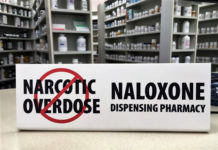be admitted to drug detox that wasn’t followed by treatment than those who did not engage. According to researchers, this suggests that receiving treatment services after drug detox is associated with improved outcomes.
Researchers posited that their results provide further support for the value of engagement in addiction treatment. Higher levels of engagement would not only improve individual outcomes after addiction treatment but also potentially reduce pricey admissions to drug detox. They suggested that providers implement practices that foster and improve retention early in addiction treatment, such as setting reminders for clients to attend treatment, following-up with clients who may miss an appointment, and keeping track of no-show rates.
They also suggested targeting client populations that had a higher risk of low engagement, such as men and/or more severe drug users. For these clients, receiving timely services could be “particularly beneficial,” researchers stated.
















